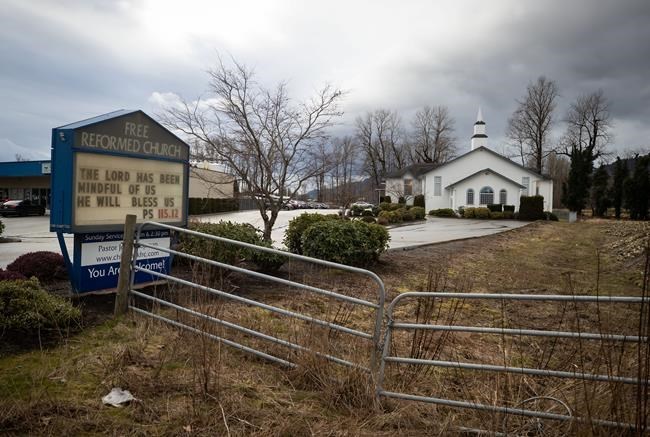VANCOUVER — A lawyer for a group of British Columbia churches that are challenging the province's COVID-19 rules prohibiting in-person religious services argued Monday the orders reflect a "value judgment."
Paul Jaffe said provincial health officer Dr. Bonnie Henry's orders allow secular gatherings such as in-class education and food distribution for people in need to continue, while discriminating against the churches and their congregants' right to freedom of religion.
He told the court his clients — which include the Riverside Calvary Chapel in Langley, Immanuel Covenant Reformed Church in Abbotsford and the Free Reformed Church of Chilliwack — have been careful to adopt safety protocols similar to those approved by Henry in places that remain open.
Jaffe also argued the province has not provided medical justification showing that the virus is spreading through church services and posing a greater risk to the public than other activities that remain allowed.
Henry told a news conference last month that churches were operating with safety measures in place throughout the summer and fall, but as the pandemic worsened, so did transmission in faith settings.
Jaffe noted the orders do not prohibit outdoor assemblies over matters of public interest or controversy, and said religion is a matter of public interest.
But if religion is the subject of discussion at an outdoor assembly, it's prohibited, he told the court.
"How can the (province) possibly say that you can get together outside to address climate change, for instance, but you can't get together outside to worship?"
Jaffe said an affidavit from deputy provincial health officer Dr. Brian Emerson in support of the public health orders treats "all churches as through they're one big homogenous group without any recognition that some churches have been very careful meeting or exceeding the requirements imposed on secular activities."
Henry and the province have said they are confident the health orders are in accordance with the law, including the Charter of Rights and Freedoms.
Hearings over the churches' petition are set to continue Tuesday.
Jaffe works with the Justice Centre for Constitutional Freedoms, a Calgary-based legal advocacy group that's also asking the court to dismiss tickets of up to $2,300 each for alleged violations of the orders by the churches.
He told the court his clients' religious beliefs are deeply held and a key tenet of their faith is congregation, though he added "some churches are fine with (online) meetings" and alternatives to in-person services.
B.C. Supreme Court Chief Justice Christopher Hinkson dismissed an injunction request in February by Henry and B.C.'s attorney general, whose lawyers argued churchgoers who are breaking COVID-19 rules would be more likely to comply with a court order.
Hinkson said he did not condone the churches' conduct and he was satisfied with the province's argument that the public could suffer from transmission of the virus where people are unsafely attending gatherings.
But he said during a hearing that the province was putting the court in an "impossible position" before the churches' own petition is heard this week.
Hinkson said he was also concerned that the administration of justice could be brought into disrepute if an injunction was granted but not enforced if the Crown found it would not be in the public interest to prosecute people who refused to adhere to it.
This report by The Canadian Press was first published March 1, 2021.
This story was produced with the financial assistance of the Facebook and Canadian Press News Fellowship.
Brenna Owen, The Canadian Press



